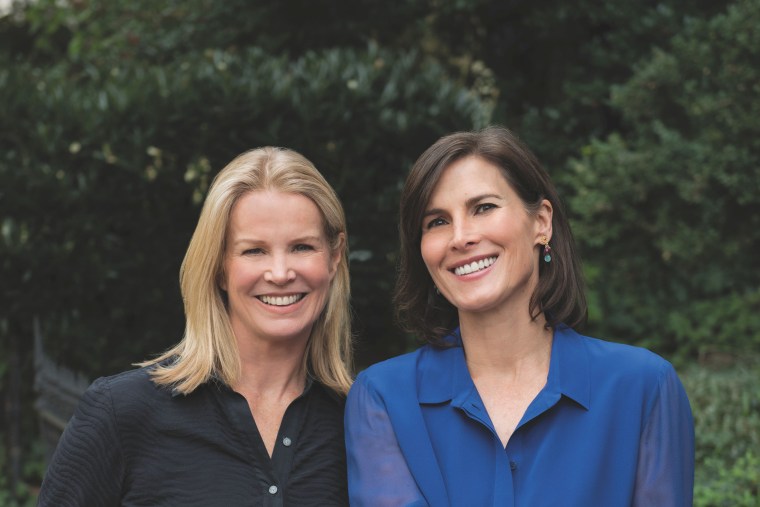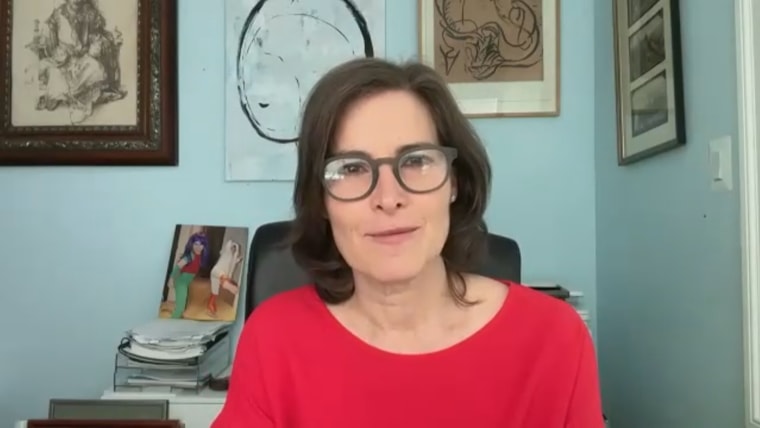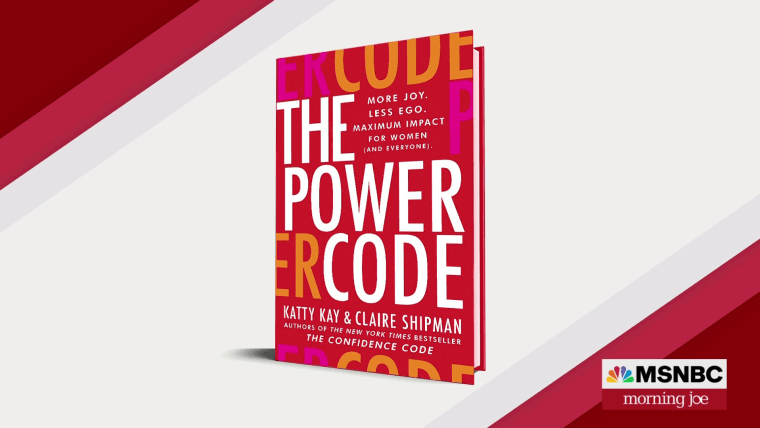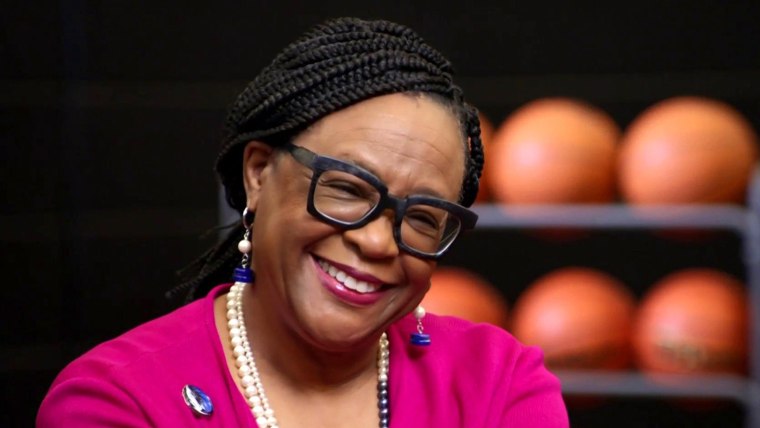Veteran journalists Katty Kay and Claire Shipman have spent the past 15 years writing about women and leadership, finding work-life balance, and building confidence from girlhood to adulthood.
But despite an increase in representation, the average number of women as heads of state or in government around the world still hovers around 25 percent, according to the UN.
Driven by their mission toward equality in the workplace and at home, the bestselling authors have now taken on a bigger question: Why does power still seem so elusive for women?
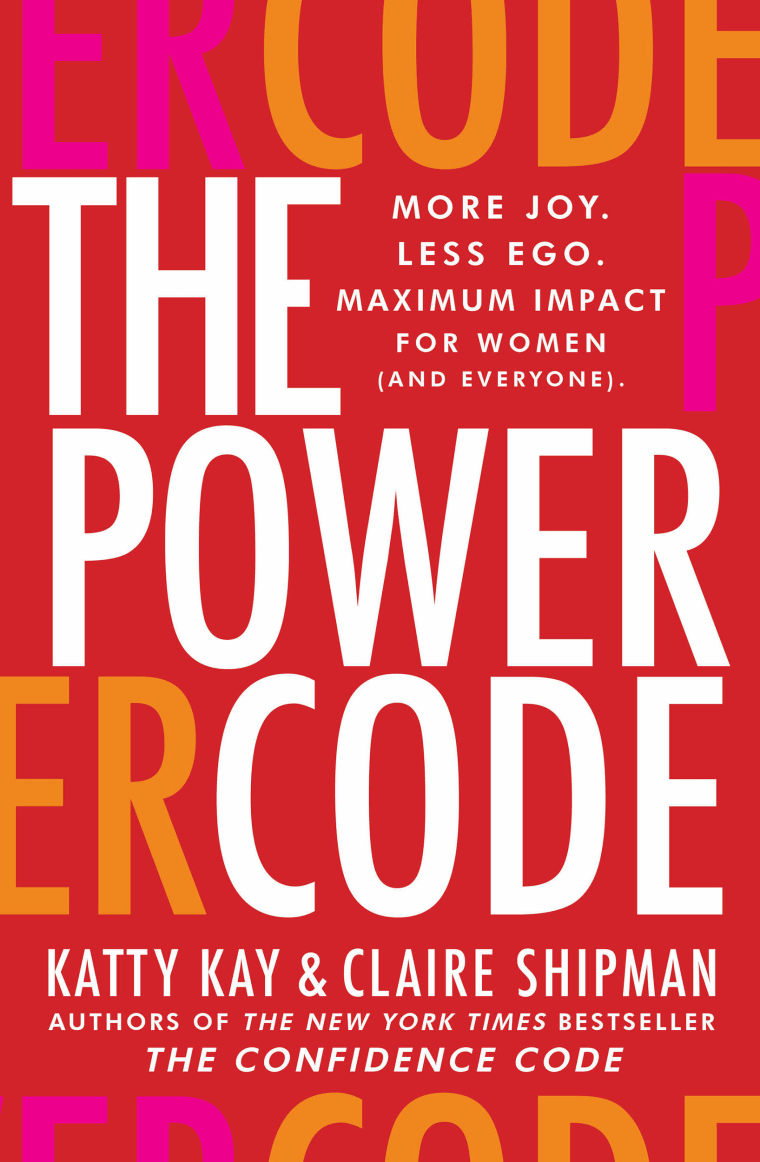
Kay and Shipman set out to answer the question – and provide a blueprint for women to follow – in their latest book, “The Power Code: More Joy. Less Ego. Maximum Impact for Women (and Everyone).”
What they found in their research and expert interviews proved insightful – and disturbing: Many women don’t actually want power as it exists today. In what they call “power aversion theory,” Kay and Shipman reveal that women’s ambivalence toward power is rooted in the desire to prioritize a broader range of life goals and make a lasting impact in society.
As it stands today, power dynamics do not work for women, men or the world. Instead, they offer an alternative version that rejects the historically strict, hierarchical nature of “power over” others, and embraces one centered on purpose – or the “power to” effect change.
Here, the idea of status, or the necessity of seeking respect, is fundamental. As they explain in the book, female-driven power is “more communal, with a focus on the end result, or the ‘why’ of power.”
Kay and Shipman recently spoke with Know Your Value about this new definition of power, how women can leverage the power they already have and find new sources of it in themselves and their community.
Below is the conversation, which has been edited for brevity and clarity:
Know Your Value: You have written several books about women, girls and confidence. What prompted you both to tackle the issue of power?
Kay: One of the things that really launched us on this whole excavation of women's relationship with power was when we came across a study a few years ago from Harvard academic Alison Wood Brooks.
She looked at whether women want power. She did nine different versions of the same study and found that women don't want power because the costs of getting it are too high.
And when they see power in action, women actually don't find it very appealing. [Women] don't want [power] because we don't want to make the compromises around the rest of our life goals, because we have a broad set of things that we value in life, compared to men, a much broader set.
And that is why we wanted the subtitle of our book – this idea of less ego – because I think a lot of women will relate when we see power in action, it's very ego-driven.
Now it's not that women don't want to run things, because we can run things well. We just need to redefine what power is and what it looks like. This book is really about changing society … and changing the way that power is wielded.
We have lots of tips in the book for what you can do if you already have power, what you can do if you're rising up through the ranks and want to get more power, and [how] to improve your relationship with it.
Know Your Value: What did you find in your research about women’s relationship with power?
Shipman: What started to emerge was that there is this kind of traditional definition of power, which is quite hierarchical and it's the kind of power over – there's a dominance aspect to it – you have power if you can get somebody to do something. And that manifests itself in organizations and at an individual level.
What we found is that it's not really the only way to define power, and that women actually intuitively feel power slightly differently. We don't think about “power over” – that's not a motivator – we think about “power to.”
In other words, to what end? We tend to ask the “why” – why are we doing this – and if it's not sensible to us, it's not of interest.
We came to see this “power over” versus “power to” is one of the real factors why women stall at a certain point, we don't feel as comfortable or interested in that kind of power. And we clash because we're trying to implement power the way we see it.
Know Your Value: You interview women leaders across various industries. Who wields power well?
Kay: One of the women leaders that we profiled is Cynthia “Cynt” Marshall, the first Black female CEO of the Dallas Mavericks. Cynt is this ball of energy and optimism and warmth.
But her story is also extraordinary. She came out of a very troubled background, she watched her father beating up her mother, and eventually the kids. She got scholarships, studied incredibly hard, her mother really motivated her [and] she went to U.C. Berkeley, where she became the first Black female cheerleader [there].
She has been breaking barriers her whole life – she rose up through the ranks of AT&T – and she was tapped by Mark Cuban to go run the Dallas Mavericks.
She's always had this theory that the more you know about the people who work for you and who you work with, the better your organization will be. She doesn't like the idea that we separate our work life and our home lives.
She says that when organizations get to a crisis point, or there is a hard time, the fact that you know what is going on in your employees lives makes them more integrated in your mission. It makes them more committed, you are more committed to them as a leader.
Shipman: The other women we profiled really had a joy about their power and they were evangelists about wanting other women to join them. They're perplexed, they're frustrated – why can't we get more women because we like what we're doing?
Know Your Value: How do women at the top – or in some level of influence at work – step into their power and effect change?
Kay: First, Get personal. One of the things we learned from the female leaders that we interviewed was that you can get personal in a way that is very direct with your employees, you can ask them directly personal questions.
It's a way to open the conversation and to show them that you want to know about more them than just their work performance, you want to know about their lives and also talk about your own life.
Power share. When an employee has a success celebrate it. When a competitor or a peer –somebody on your same level has a success – make sure you celebrate that too.
Stamp out fear. When you hear bullies at work, there is nothing more effective than calling it out in real time. If you are in a position of power, it is the single most powerful thing you can do for your subordinates to call out fear amongst other people. If people are using fear as a tool, call it out in real time because there is no place for it in your organization.
Return on respect. Show authentic respect by listening – not talking over people – and by asking for their opinions. Then you will win the respect of your employees and they will be motivated to perform at their best.
Enjoy the ride. Once you've got over your fear of getting power and having power, don't forget that there can be fun in it. There can be joy in having power!
